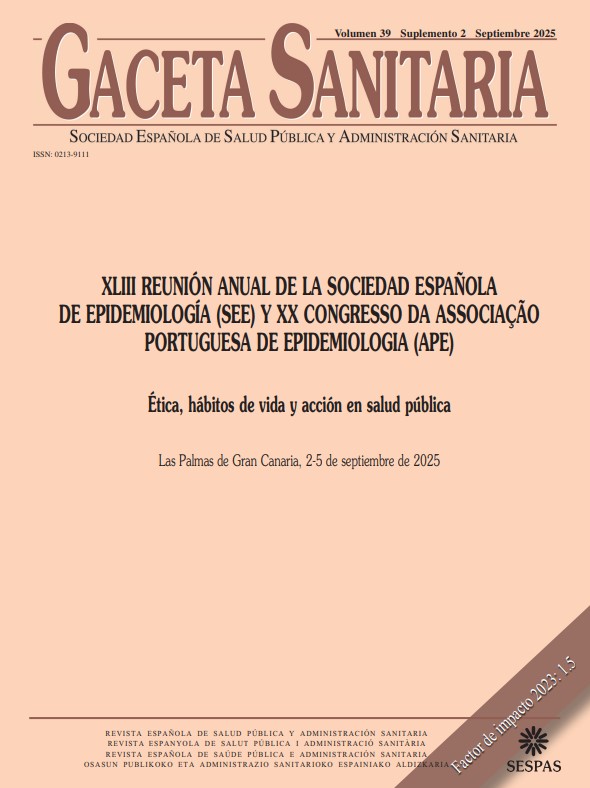265 - ALLOSTATIC LOAD AND COLORECTAL CANCER RISK IN THE EPIC-SPAIN COHORT: AN ALTERNATIVE WAY TO STUDY THE ROLE OF STRESS
ibs.GRANADA; Escuela Andaluza de Salud Pública; CIBERESP; HUVN; ISPLN; Departamento de Salud Gobierno Vasco; IMIB; CNE-ISCIII.
Background/Objectives: Chronic stress may increase the risk of colorectal cancer (CRC) through several biological mechanisms, including neuroendocrine activation, immune system disruption, and gut microbiota dysbiosis. However, epidemiological evidence regarding the relationship between stress and CRC remains inconclusive. Recently, a model focusing on the cumulative physiological burden of chronic stress, expressed as the "allostatic load index", has started to show promising results in oncology research. In this study, we investigated the association between pre-diagnostic allostatic load and CRC risk.
Methods: We conducted a case-control study nested within the European Prospective Investigation into Cancer and Nutrition (EPIC)-Spain cohort, which recruited 32,895 participants between 1992-1996 from the provinces of Granada, Murcia, Navarra, and Gipuzkoa. At baseline, participants completed a detailed interview, underwent a physical examination, and provided blood samples. A total of 1,046 incident CRC cases diagnosed up to 2018 were individually matched to 1,046 cancer-free controls for age, sex, time since blood draw, and fasting status. Blood samples were successfully analyzed in all 141 case-control pairs from Granada and an allostatic load index was calculated using a distribution-based algorithm applied to 12 neuroendocrine, cardiometabolic, and immune biomarkers. Conditional logistic regression was used to compute odds ratios (ORs) and 95% confidence intervals (95%ICs) for the relationship between the allostatic load index and CRC in the EPIC-Granada subcohort.
Results: Higher allostatic load was significantly associated with increased risk of CRC, with OR = 1.26 (95%CI 1.06-1.49) per unit increase; and OR = 2.75 (95%CI 1.15-6.55) for the highest (Q4) vs. lowest (Q1) quartile. The allostatic load biomarkers showing significant differences (p < 0.05) between cases and controls included cortisol, DHEA-S, HDL cholesterol, HOMA-IR, albumin, and interleukin-6.
Conclusions/Recommendations: Higher pre-diagnostic allostatic load was associated with higher CRC risk in a sample of the EPIC-Spain cohort. These findings support the relevance of allostatic load as a translational biomarker, bridging basic and epidemiological research on stress and cancer, and informing the development of personalized prevention strategies.
Financiación: ESP24PI03 CIBERESP; CP23/00024 ISCIII.















